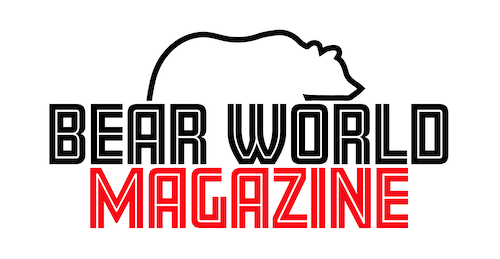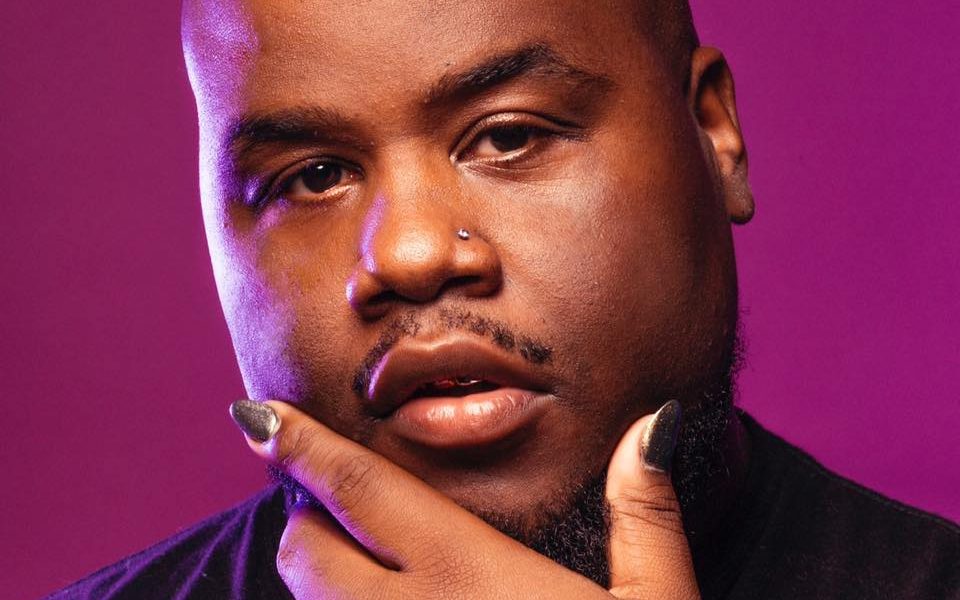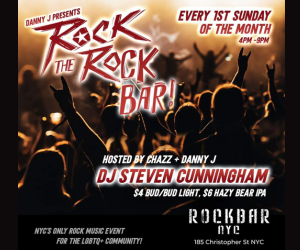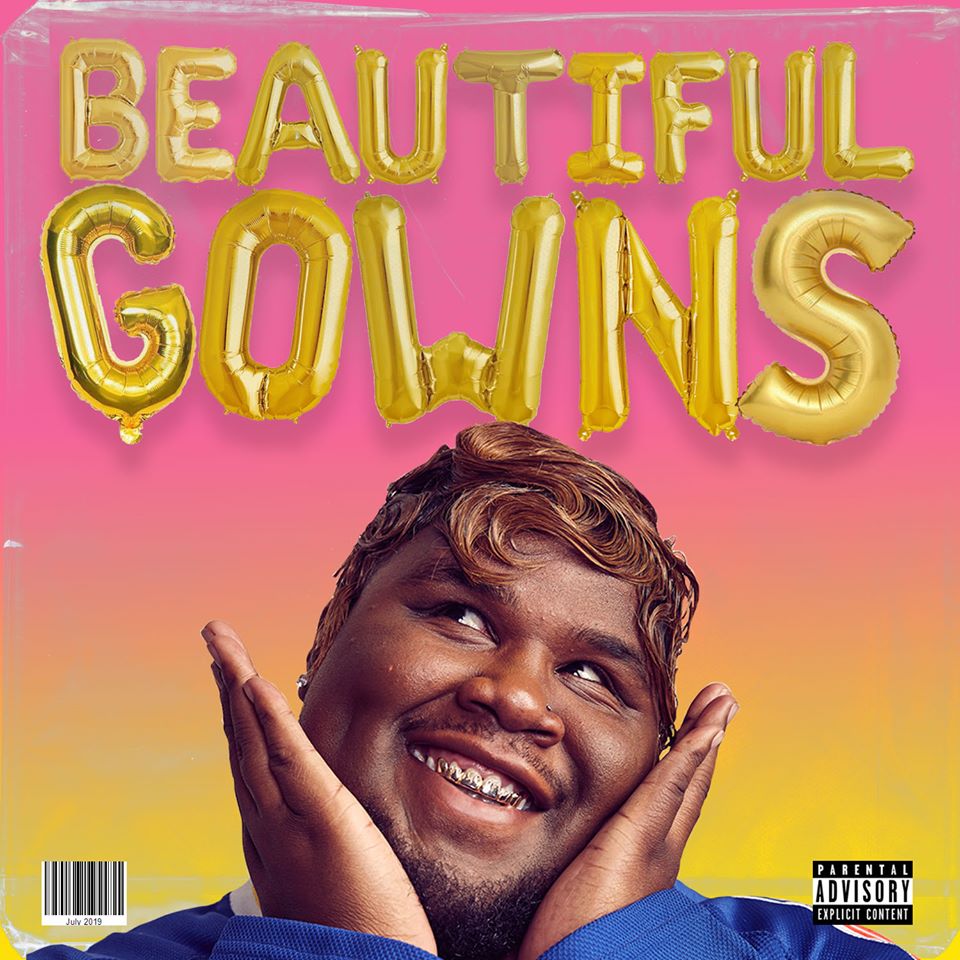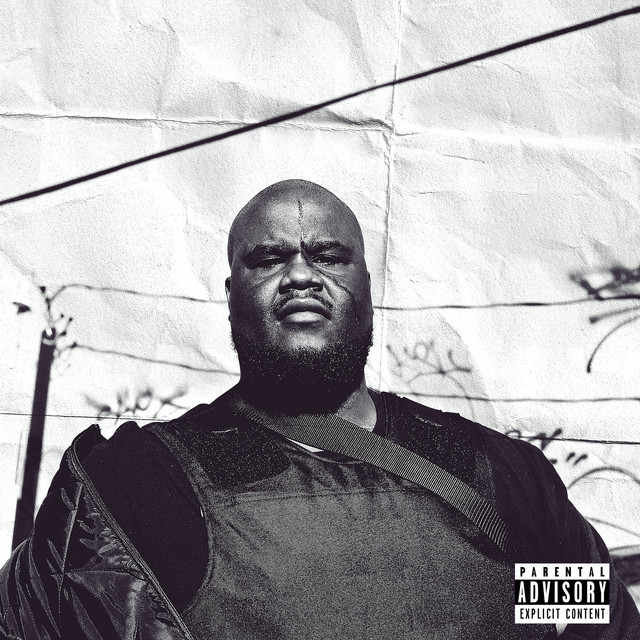Rapper DDm discusses his new EP, recounting the Black queer male experience
DDm is not your ordinary rapper. Born and raised in the city of Baltimore, Maryland, he first made a name for himself as a local battle rapper. After gaining a large following, DDm (short for Dapper Dan Midas) and experiencing some of the harsh realities of homophobia and queer stigma in the Hip-Hop community, DDm took to the booth, helping to create a space for queer artists in Hip-Hop.
Always a flamboyant performer and an imaginative and creative lyricist, DDm definitely puts his own spin on rap, while still maintaining some of the fundamental principles of the genre. He is definitely a force, and one that’s been building for a long time.
The release of his most recent EP The Ballad of Omar is a true testament to his lyrical talent, but it’s also very much so a raw, emotional and extremely personal portrait of his life and the lives of many others like him. Following the success of his last album Beautiful Gowns, The Ballad of Omar takes on a darker, grittier tone.
We are taken on a journey through 1990s Baltimore, as a young, Black queer man paints a picture of what it’s like to navigate homophobia, violence and corruption in the innercity. It’s sometimes heartbreaking, sometimes infuriating, sometimes liberating, but it’s always very much so necessary.
With all that’s going on in America right now in the wake of the murders of Ahmaud Arbery, Breonna Taylor and George Floyd, and the call to action that we’ve seen from members of the Black community who have battled injustice, police brutality and systemic racism for centuries, I can’t think of a better time to listen to this album. Black Lives Matter includes Black queer lives, and we’re so often left out of the picture.
I had a chance to sit down with my friend DDm and discuss his new EP, the importance of telling his story and what we can expect from him next.
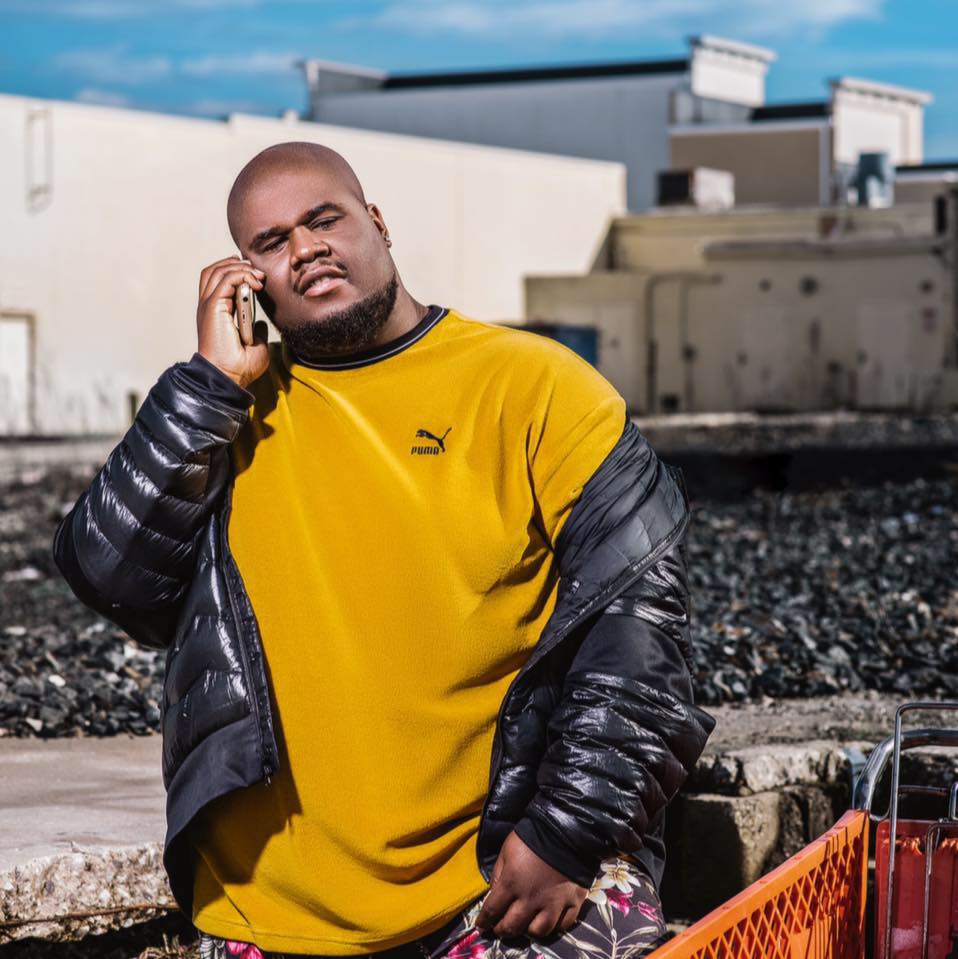
Kyle Jackson: So, my first impression when listening to this album was “he took it back to some raw, real Hip-Hop shit.” Your last album Beautiful Gowns was a little bit more of an introduction into the mainstream, and it was excellent.
But I feel like this album addresses some real stuff. You seem to be cleaning out the closet a bit on this one. So, the first question I want to ask simply is Who is Omar, and what does the title The Ballad of Omar mean?
DDm: Omar is the character from the hit HBO series The Wire, which is, of course, set in my hometown of Baltimore. Omar was a gay stick-up boy. He was highly respected on the streets, but he was also unapologetically gay. I identified with that part of the character.
But what I didn’t want is to make it seem like this album is the soundtrack to a TV show. I kind of wanted to take that character and put my own spin on it — put my life, experiences and what I’ve done personally into the music, and really just tell a piece of my story with it. I say “a piece” of the story because you’re not really going to be able to tell your whole story through eight songs, but I wanted to get some of those earlier experiences out.
KJ: Right, and I could tell that it had a lot to do with your early experiences. Me being someone who lived in Baltimore for seven years, I knew exactly what you were talking about in some of these songs. Listening to “1995”, for example, I knew exactly what park you were talking about — we don’t have to say the name of it. (laughs)
But I know the park where the guys with the “timbs and the white tank tops” hang out and do Tina after dark. I could literally see the picture you were painting so clearly. There was another song after that one where a mother is literally heard shouting at a young child for being gay. Was that a piece of your experience in that song as well?
DDm: That was “Boys Don’t Cry”, and that was the first song I wrote for this project, actually. And I had two people do voiceovers for that song — my friend Alex and my homegirl Ashley.
That song has a lot to do with some of my personal experiences, but a lot of it has to do with experiences of friends also. My mom was never that harsh to me, but I had friends who grew up in houses where it was that real.
The first verse is actually very much my life, and the second verse is actually a lot of my life too. But I wanted to try to dig a little bit into the psyche of Blacks boys — not even just Black boys, but Black men in general. You know, some people ask why we’re so stern, or “Oh my god, you’re so shady!” Well, there’s a reason for that.
KJ: Exactly. Those experiences that you went through growing up sort of shape how you view the world, how you speak to people, etc. It’s similar to when I wrote a play in 2014, about my experiences growing up as a queer Black man in the south –
DDm: -Which was very interesting, I’m sure.
KJ: Oh, it definitely was. I put a lot of my own experiences in that play, and I had many people ask me things — such as what I just asked you. Things like “Did those things really happen to you?”
I explained that it wasn’t just about me, but it was a compilation of experiences from my childhood. So, I totally understand and connect with that side of you that is sort of combining those many experiences. And that’s amazing, because it means a lot of others will be able to connect to it as well.
DDm: The response to that song has been great. Actually, the response to the EP in general has just been quite surprising. Not because I don’t think I put out a great body of work, but you never really know how people are going to receive it. And to have so many Black men generally just be so responsive to this particular body of work…
The emails, the private messages, the public messages, the dissections, the soliloquies, they’re all great. Especially from Black men, because you know we’re one of the most vocal groups of people. All of it has just been so encouraging, and makes me very hopeful about where this conversation can go and where my career can go.
KJ: I totally get it. And, let’s be honest — the gay community, in general, can stand to be a little bit more diverse and more understanding of the experiences of Black men and how they differ from the experiences of White men or any other group of people.
That’s why it was so important for me to talk to you about this album, because I feel like people need to be more aware of the experiences of Black gay men in the community.
DDm: Well, I definitely appreciate it.
KJ: Absolutely! No problem. So, the next thing I have to ask is… Who is Miss Kam? Where has she been? She was featured on “Rachacha”, and came through and just slayed her verse.
DDm: She’s from West Baltimore, like me. You know we have the club here called The Crown, where a lot of the kids go to sharpen their skills. My friend, family and fellow artist, Kotic Couture, was like “You gotta see Miss Kam, she’s dope!” And I was just like, “Oh ok”, because people always say someone’s dope, and I’m just like whatever sometimes.
But I went to go see her live, and I was very intrigued and impressed. I thought she was very good, so I called her up and we started talking. Then one day I was like, “I got a record for you”, and she came through and laid the verse down in no time.
KJ: And I could tell, just by listening to it, that it seemed effortless for her. She was just spittin’!
DDm: Well, you know, that’s what we do. Baltimore is a tough city. We’re a very blue collar town; We’re very blunt and to the point. You know where you stand with us, and you know where you don’t stand with us. We don’t make it hard to figure out. So I just wanted to have that energy on the project. No more play play! I’m tired of playing with people.
KJ: And that song really just brings it home. I keep saying that I think this EP is so dope. And, being someone that has watched the trajectory of your career from when you were chilling at my apartment in Baltimore writing raps in my living room to where you are now, I really feel like this was a very smart move for you.
For instance, your last album Beautiful Gowns, was very fun. The front cover of it was very comical and animated, and it presented that bubbly side to you that I’m familiar with. But this EP is just different — From the expression on your face on the cover, to everything that you’re talking about.
It’s real. And it just gives two different aspects of your personality. It presents these two different sides of who you are — the fun, playful side, and now that raw, tough side.
DDm: Yea, I think that’s important because we as human beings don’t like to see each other as multidimensional. I’m thankful that I have been able to write my story my own way without a lot of interference, and that’s what I’ve wanted to achieve with these bodies of work.
I’m going to have another body of work out late fall/early winter of this year that will continue this series, and give more background to a lot of other things in my life. I just didn’t want to ever pigeonhole myself, or just become one particular thing. I wanted to be honest and create the space for me to write and do whatever I wanted without it being like, “Oh my god, what is this?”
KJ: Yes, and I definitely appreciate the work you’ve put in because, as I said, I see your growth. You were never in the closet, but you had a certain demeanor about you. And I’ve seen you grow even more into this person that just does not give a fuck.
But you’ve never been the type of person to hold your tongue. You’ve always put it out there.
DDm: The best approach is always the direct one.
KJ: I totally get it. It brings me back to when you did that thing where you bought Omarosa’s book and were literally reading chapters of it online. It was something that many people didn’t expect, and it was actually done in a really smart way.
At the time, Omarosa was just leaving the Trump administration, and she came out with this tell-all book about her experiences. Black people and people in the LGBTQ community weren’t feeling her at all, but you were like, “This book is juicy and messy, and I want to know what happened.” Is that what prompted you to do that?
DDm: I really didn’t have an agenda with that, honestly. I’ve always had a very political mind. My mom always watched the news because she was just that kind of person, so I was always aware because I had to be.
And I don’t necessarily believe in throwing Black women away, even if you don’t believe or agree with everything they say. Everyone has the space to make their own decisions and form their own opinions.
I was just intrigued by the book, and she had tapes and receipts — that’s what intrigued me first and foremost. So, I bought the book, and I started reading some of it online.
I wasn’t planning for it to become this huge thing. I thought maybe 20 or 30 people would watch it, at best. I thought we would all chuckle about it, and then I would move on with my life.
It turned into something else altogether, and two years later I’m now involved in hosting breakdowns about news, politics and what’s going on in the world. So, it definitely catapulted me into an entirely different place.
KJ: Yeah, because you now do the Facebook Live thing every night at like 8:00pm, which I’ve definitely tuned in to a bunch of times. Your Facebook Live segments are really popular.
DDm: Yea, I usually do it on a Tuesday or Thursday, and I just talk about whatever hot topics there are in the news, politics or mainstream pop culture that day.
I usually try to come with as many facts and as much research as I can, and just give my opinion on it. I’m a huge proponent of “do your own research”. That’s just how I view everything. People have been sticking with it, so it’s good to see.
KJ: Great! Well, you said kind of touched on it earlier, but what are you hoping people will walk away with from this project, and what’s next for you?
DDm: I’ve honestly just learned not to expect anything. I’m just sort of going with the flow. I’m doing more press, and people are starting to inquire more about the project.
Word of mouth on the project is extremely strong. I’ve gotten some pretty good high-profile interview inquiries, so I’m just going to go ahead and knock them out.
I’m going to continue to build, especially in this time of COVID-19 with me not being able to tour and do shows like I typically would. I’m definitely looking into those options, once the world opens back up for real. I’m glad that people like the EP, though, and I’m mostly glad that the people I made it for like it.
I’m just hoping that I can continue to work, honestly. I’m in the process of relocating to Los Angeles later this year and continuing my path. I feel like there’s a lot of work for me to do. I’ve been training for years, and now it’s finally starting to hit when it’s supposed to hit.
And that’s a good thing, because there were definitely times when I thought this wasn’t working and maybe it was time to call it a day and move on. But I believe that there’s always a higher power with a final say.
One of the things that makes me so proud of this project is now getting inboxes from guys who have paid me dust, or would say things like “Oh, it [the music] was just alright”, and are now saying they feel seen or they’ve never experienced their life being told in this way. That’s the real payoff for me.
I feel something is getting ready to happen. I don’t know what it is, and I’m not going to dwell on what it is. But something great is getting ready to happen in my life, and I just hope that I’m ready and humble enough to receive it at its fullest potential.
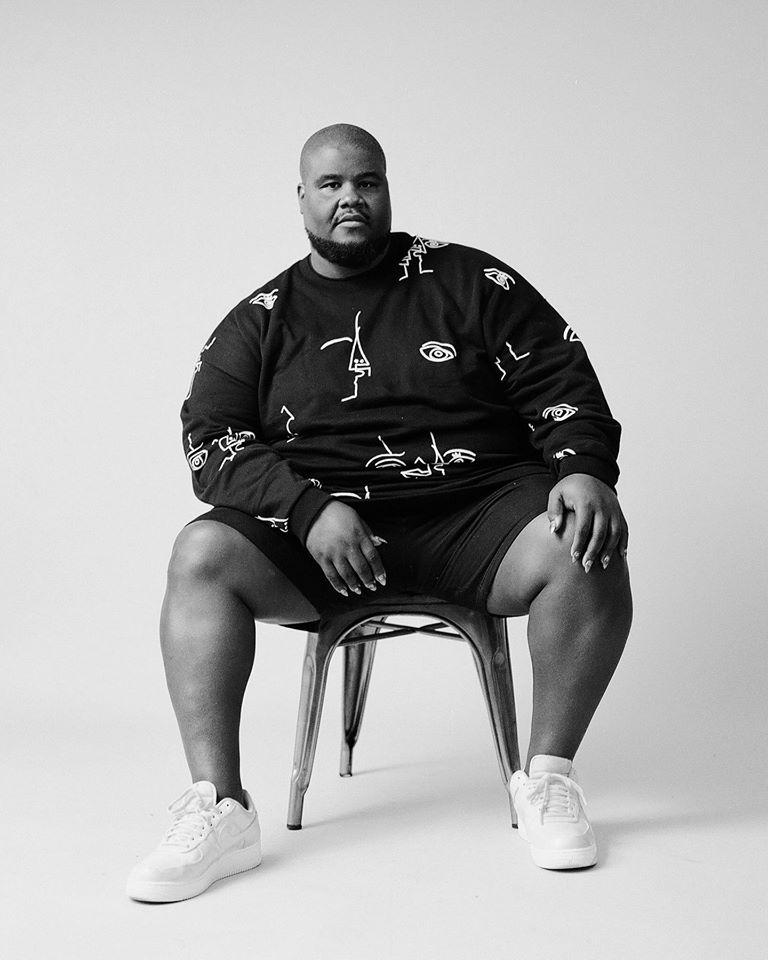
The Ballad of Omar is available on all streaming services.
Follow DDm on Instagram, Facebook, Twitter, Youtube and Soundcloud.
Watch the music videos for “He Say, She Say” and “Pull Up” from the album Beautiful Gowns below!
